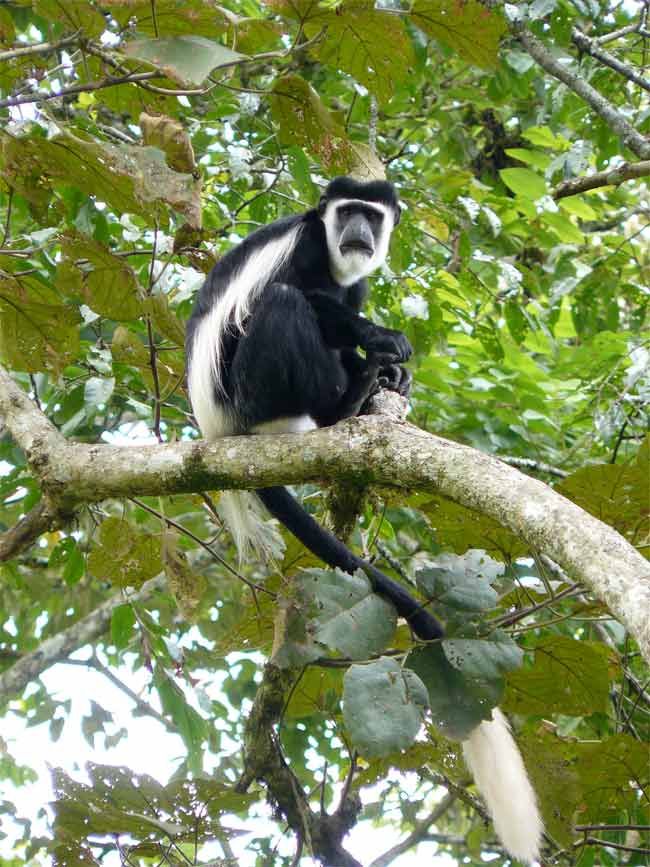Stalking Infectious Diseases in Wildlife

This ScienceLives article was provided to LiveScience in partnership with the National Science Foundation.
Tony Goldberg is a Professor of Epidemiology at the University of Wisconsin-Madison with training in biological, medical and social sciences. Goldberg's research focuses on the ecology, epidemiology and evolution of infectious diseases, including West Nile virus and various emerging pathogens of wild non-human primates, domestic animals, and fish. His goal is to understand general mechanisms of pathogen transmission and evolution, and to use these findings to improve the health and well-being of people and animals, while conserving the rapidly changing ecosystems both share. In addition to his professional interests, Goldberg enjoys the outdoors as well as literature, music, theatre and a variety of other cultural activities. Learn more about West Nile here, and about Goldberg’s Kibale EcoHealth project here. Read more about Goldberg's ongoing work in West Nile Virus: The Search for Answers in Chicago's Suburbs, and read his responses to the ScienceLives 10 Questions below.
Name: Tony Goldberg Age: 42 Institution: University of Wisconsin-Madison Field of Study: Ecology, Epidemiology, and Evolution of Infectious Disease
What inspired you to choose this field of study? In college and graduate school, I became inspired by the compelling logic of Darwin's theory of evolution by natural selection. This, plus a love of nature and an interest in medicine (my dad is a physician, and so was my grandfather) led me to combine my interests and to focus on how diseases are transmitted and evolve in populations.
What is the best piece of advice you ever received? A wise veterinarian once told me "You can't plan your life; you can only take advantage of the opportunities that come your way." This is so true! Science, like the rest of life, is all about recognizing opportunities and seizing them.
What was your first scientific experiment as a child? I loved collecting rocks and was particularly fond of geodes. I especially liked the hollow type. I recall making crude estimates of the density of geodes at the local rock shop so I could predict which would be the hollow ones.
What is your favorite thing about being a scientist or researcher? The "thrill of discovery." There's a wonderful feeling when you analyze your data and realize you've discovered something important that no one has thought of before. It's like finding buried treasure.
Sign up for the Live Science daily newsletter now
Get the world’s most fascinating discoveries delivered straight to your inbox.
What is the most important characteristic a scientist must demonstrate in order to be an effective scientist? Creative thinking. A good scientist must see beyond the obvious and be able to question core assumptions. If you "go with the flow," you are unlikely to have new insights.
What are the societal benefits of your research? My research is about infectious disease. In my opinion, there's too much reliance these days on disease treatment and not enough on prevention. The most efficient way to prevent infectious diseases is to understand the ecology of the pathogens that cause disease and to prevent their transmission in the first place. Those of us working at the interface of ecology and disease can potentially make large contributions to society by helping to prevent disease transmission.
Who has had the most influence on your thinking as a researcher? Indirectly, Charles Darwin. Darwin's theory of evolution by natural selection unifies the study of all organisms, including infectious ones. Directly, I was influenced by my grandfather, a dedicated and skilled physician, and by my undergraduate mentor Paul Ewald, a well-known evolutionary biologist of infectious disease.
What about your field or being a scientist do you think would surprise people the most? Most people think that discoveries in science happen out in nature or on the bench in the lab. In my discipline, they happen on the computer, when data are analyzed. People might find it surprising how exciting it can be to "crunch numbers" and see general trends emerge.
If you could only rescue one thing from your burning office or lab, what would it be? That external extension of my brain called a "laptop."
What music do you play most often in your lab or car? Whatever happens to be playing on National Public Radio.
Editor's Note: This research was supported by the National Science Foundation (NSF), the federal agency charged with funding basic research and education across all fields of science and engineering. Any opinions, findings, and conclusions or recommendations expressed in this material are those of the author and do not necessarily reflect the views of the National Science Foundation. See the ScienceLives archive.












